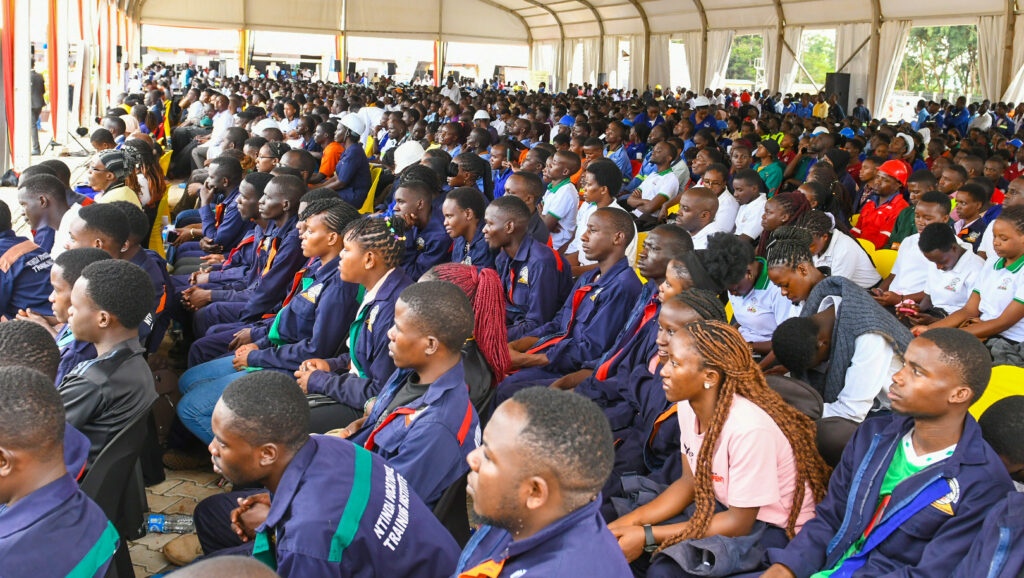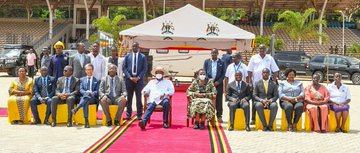President Yoweri Kaguta Museveni has called for greater emphasis on science and technology to drive the much-needed socio-economic transformation of Africa.
Speaking at the National Celebrations of the International Day of Education (IDE) 2025 at Kololo Independence Grounds in Kampala, President Museveni stressed that Africa’s historical lag in development was largely due to its technological disadvantage. “Africa must never lag again in science and technology,” the President said.
“Europe acquired gunpowder when we were still using bows and arrows. That’s why we say, yes, education is very important, but emphasis must be put on science and technology, and the Artificial Intelligence (AI) you are talking about is part of that. It is not magic but the use of natural laws to solve problems. People should not fear AI because it is part of the understanding of nature and using it to solve our problems.”
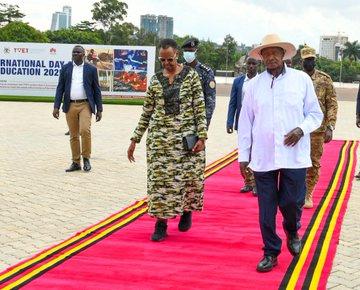
The event was held under the theme, “AI and Education: Preserving Human Agency in a World of Automation.” President Museveni also acknowledged the importance of social sciences in development.
“It is not like we don’t need social sciences. If you study economics, you will hear of the four factors of production: land, labour, capital and entrepreneurship. Entrepreneurship can be a humanities subject. It is not necessarily a science subject. So, social science is important; the only difference is that it must have a base of science and technology,” he explained.
Reiterating his long-standing call, President Museveni urged full implementation of free education in government schools to ensure access for all. “Now, when we came, and as soon as peace and security were restored, we proposed to you during the elections of 1996 that we should have education for all—Universal Education. Unfortunately, this has not been fully implemented because of the resistance by some of the head teachers and the PTA,” he said.
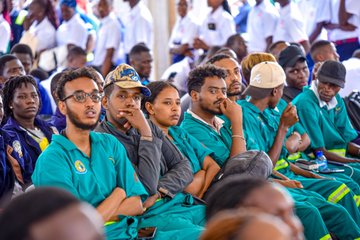
“We must ensure that there are no charges in government schools. Charges are a big bottleneck which must be stopped. You are talking about the skilling hubs and how they are helping young people who were very desperate. These are children who were locked out of school due to charges in government schools.”
The President further encouraged Western nations to work collaboratively with Africa towards global prosperity. “Global affluence benefits everybody,” he stated.
First Lady and Minister of Education and Sports, Maama Janet Museveni, thanked the President for prioritising the event despite his busy schedule, describing it as a mark of his selfless commitment to the education sector.
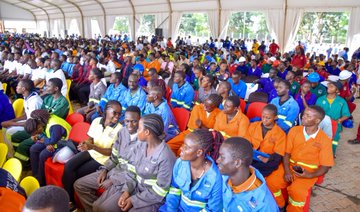
“As we are all aware, education is a basic right that every person, irrespective of age, gender or ability, should enjoy. Indeed, the Constitution of the Republic of Uganda recognises education as a fundamental human right and a key driver of development. It is also clear that our government, through its national planning framework,s recognises human capital development as a key priority area to propel development,” she said.
She further noted that Uganda had localised this year’s IDE theme to focus on promoting an employer-led Technical and Vocational Education and Training (TVET) system that meets labour market needs. “TVET offers numerous benefits, including enhanced employability, increased economic growth and is a pathway to social mobility. TVET programs equip individuals with critical skills and knowledge, making them more attractive to employers and driving economic development,” she said.
Maama Janet emphasised that TVET fosters lifelong learning and inclusivity, particularly for people with disabilities, aligning with Sustainable Development Goal No. 4. “Additionally, TVET training has the potential to foster inclusivity and break down barriers to employment for workers with disabilities. This goes a long way in increasing workforce participation and productivity,” she added.
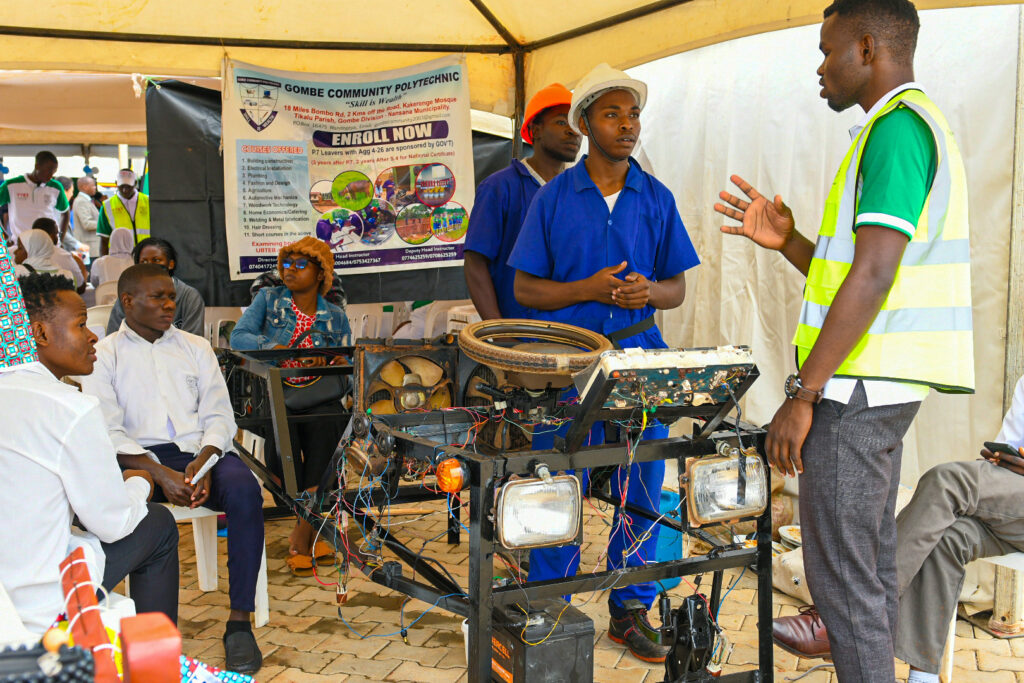
She also lauded President Museveni for supporting and assenting to the TVET Act 2025. “This long-awaited law will now give strategic direction and guidance for the required reforms in the TVET sub-sector. I am happy to report that the law commenced on 15th March 2025 and the process of establishing the relevant agencies to operationalise it, such as the TVET Council and the Assessment Boards, is ongoing.”
Highlighting youth unemployment challenges, Maama Janet praised the Presidential Skilling Hubs initiative. “Your Excellency, according to the recent National Population Census 2024, it is evident that the highest percentage of our population is youth, which poses a challenge of youth unemployment. Given the demands of employment, it is inevitable that the Government focuses on skilling young people to meet the demands of the world of work,” she said.
“Through the Presidential Skilling Hubs, many out-of-school youth have been provided with relevant skills to enable them to be self-employed, and it is gratifying to know that a number of them have come up with innovations and prototypes. All that they require is more support to take them to the next level of production. If the Government can ensure that each of those young people gets a toolbox to start a small starter industry, then employing these people would be real.”
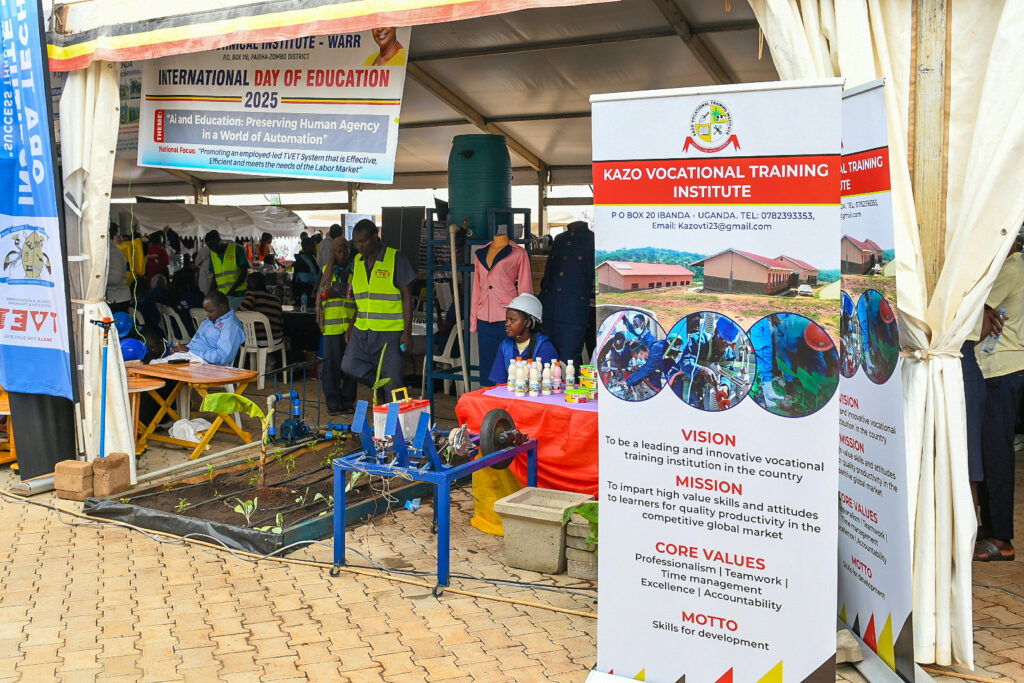
Permanent Secretary of the Ministry of Education and Sports, Ms. Kedrace Turyagyenda, informed the gathering that this year’s celebrations centred on TVET as a strategic pillar for skilling, employment, and national development. “Over the past decade, Uganda has made remarkable progress in advancing TVET, and today’s event provides an opportunity to reflect on our journey and the vision ahead of us,” she said.
The event was attended by Ministers, Members of Parliament, Members of the Diplomatic Corps, development partners, and other distinguished guests.
